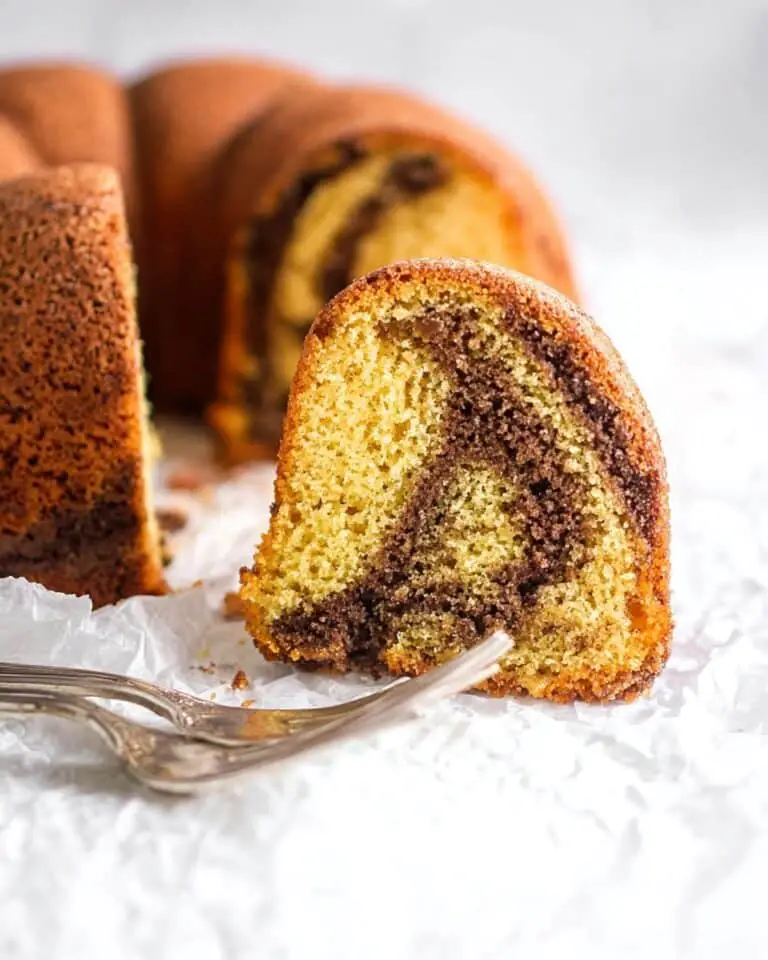If you’ve ever dreamt of biting into the perfect cookie that balances crumbly texture with rich, buttery flavor, let me introduce you to a treat that will steal your heart: Sablé Breton Cookies: Classic French Salted Butter Cookies Recipe. These little delights, hailing from Brittany, France, are made with just a handful of simple ingredients but deliver a sophisticated, melt-in-your-mouth sensation that feels like a warm, buttery hug. Easy to prepare yet utterly impressive, these cookies are your new go-to for elevating tea time, impressing guests, or simply indulging yourself. Trust me, once you try this recipe, you’ll want to make these golden beauties again and again.
Ingredients You’ll Need

Sometimes, the best recipes are the ones with few ingredients, each playing an essential role in crafting an extraordinary result. In this case, your ingredients bring flavor, texture, and that irresistible buttery richness to every bite of these classic French cookies.
- Egg Yolks: Use room temperature yolks to ensure the dough blends smoothly and gives a tender crumb.
- Icing Sugar: Provides a delicate sweetness while melting effortlessly into the mixture for that silky texture.
- Salted Butter: Soft but not melted butter adds the iconic rich and salty punch that defines Sablé Breton Cookies.
- Plain / All-Purpose Flour: The backbone of the cookie, creating structure without weighing down the crumb.
- Baking Powder: Just a touch helps the cookies gently rise and stay delightfully tender.
- Extra Egg Yolk (optional): For an egg wash that promotes a beautiful golden finish, making your cookies look as dreamy as they taste.
How to Make Sablé Breton Cookies: Classic French Salted Butter Cookies Recipe
Step 1: Soften and Prepare Your Ingredients
Start by bringing your salted butter to room temperature for at least 30 minutes—it should be very soft but definitely not melted. Separating the egg yolks from the whites early sets you up for a smooth, creamy base for your dough.
Step 2: Whisk Egg Yolks and Icing Sugar
In a large bowl, vigorously whisk the egg yolks with the icing sugar until the mixture turns pale and silky smooth. This step incorporates air and helps create the delicate, melt-in-your-mouth quality that Sablé Breton Cookies are famous for.
Step 3: Incorporate Butter
Mix your soft, salted butter into the egg and sugar blend. Use a stiff spatula or your mixer on low speed to achieve a thick, luscious consistency—this will give your cookies that signature richness and a subtle salty edge.
Step 4: Add Dry Ingredients and Form Dough
Sift the flour and baking powder together to avoid lumps, then slowly fold them into your wet mixture. Use your hands or a spatula to bring everything together gently until you have a smooth, cohesive cookie dough that’s soft but holds its shape.
Step 5: Roll and Chill the Dough
Transfer the dough onto a sheet of baking paper, cover it with another, and roll out to about 6 mm thick. Chilling the dough at this stage for at least one hour (or overnight) is key to firming it up so your cookies bake beautifully without losing their shape.
Step 6: Cut and Prepare for Baking
Preheat your oven to 160°C (325°F). Remove the top sheet of baking paper and cut the dough into 6 cm rounds using a cookie cutter. Transfer them carefully onto a parchment-lined baking tray. For a charming finishing touch, press the back of a fork into each cookie to create a classic crisscross pattern, dipping the fork in water if it starts sticking. Optionally, brush with extra egg yolk for that irresistible golden sheen.
Step 7: Bake to Perfection
Bake your Sablé Breton Cookies for 15 to 18 minutes until golden but not overly browned—this timing ensures that crumbly, buttery texture you’re aiming for. Let them cool completely on a wire rack, then prepare to fall in love.
How to Serve Sablé Breton Cookies: Classic French Salted Butter Cookies Recipe

Garnishes
While these cookies shine all on their own, a light dusting of powdered sugar or a sprinkle of flaky sea salt can enhance their buttery flavor and presentation, adding a refined touch to every bite.
Side Dishes
Pair these cookies with a cup of rich black tea, freshly brewed coffee, or even a glass of dessert wine like Sauternes. Their salty-butter balance pairs incredibly well with both sweet and savory beverages, making each moment truly special.
Creative Ways to Present
Layer your Sablé Breton Cookies between sheets of parchment paper and tie with a rustic ribbon for gifting. Or arrange them with fresh berries and whipped cream on a dessert platter to create a sophisticated and inviting spread that will wow your guests.
Make Ahead and Storage
Storing Leftovers
These cookies keep their freshness beautifully when stored in an airtight container at room temperature for up to five days. This makes them a perfect make-ahead treat for sharing or savoring throughout the week.
Freezing
If you want to keep your Sablé Breton Cookies around even longer, freeze the baked cookies in a sealed freezer bag for up to a month. When ready to enjoy, simply thaw at room temperature for an hour or two to restore that melt-in-the-mouth texture.
Reheating
To revive any cookies that have lost a bit of their crispness, pop them in a preheated oven at 150°C (300°F) for about 5 minutes. This will gently warm them through and bring back that fresh-from-the-oven crunch without drying them out.
FAQs
What makes Sablé Breton Cookies different from regular butter cookies?
Sablé Breton Cookies incorporate salted butter and often baking powder, giving them a richer, slightly salty flavor and a tender, crumbly texture unlike many traditional butter cookies which can be sweeter and denser.
Can I use unsalted butter instead of salted butter?
You can, but be sure to add a pinch of salt to the dough to mimic the balance that salted butter provides. The salt is crucial for highlighting the cookie’s buttery flavor.
Is it necessary to chill the dough?
Absolutely. Chilling firms the dough, making it easier to roll out and cut clean shapes, while preventing the cookies from spreading too much during baking.
Can I make these cookies gluten-free?
Yes, but you’ll need to substitute the flour with a gluten-free blend suitable for baking. Keep in mind that texture might be slightly different, so try to use a blend with xanthan gum to help hold the dough together.
How long do these cookies stay fresh?
Stored in an airtight container at room temperature, they’ll stay fresh for up to five days, retaining their wonderful crumbly texture and flavor.
Final Thoughts
There’s something truly special about baking a batch of Sablé Breton Cookies: Classic French Salted Butter Cookies Recipe and sharing them with loved ones. Their buttery aroma, delicate crumb, and just-right saltiness make for a wonderfully comforting and impressive treat. I can’t wait for you to try this recipe and discover how easy it is to bring a bit of classic French charm into your kitchen. Once you do, these cookies will surely become a beloved staple in your baking repertoire.
Print
Sablé Breton Cookies: Classic French Salted Butter Cookies Recipe
- Prep Time: 20 minutes
- Cook Time: 15 minutes
- Total Time: 1 hour 35 minutes
- Yield: 20 Cookies
- Category: Dessert
- Method: Baking
- Cuisine: French
Description
These classic French Sablé Breton Cookies are buttery, crumbly, and melt-in-your-mouth delicious. Made with just 5 simple ingredients, they offer a perfect balance of sweetness and saltiness, making them a delightful treat that stays fresh for days. Perfectly golden and tender, these cookies are simple to prepare and a wonderful accompaniment to tea or coffee.
Ingredients
Cookie Dough
- 3 Egg Yolks, at room temperature
- 75 gr (3/4 cup) Icing Sugar
- 100 gr (7 tablespoons) Salted Butter, very soft
- 175 gr (1 cup + 1 1/2 tablespoons) Plain / All-Purpose Flour
- 1/2 teaspoon Baking Powder
Optional Egg Wash
- 1 Egg Yolk, for the Egg Wash
Instructions
- Prepare the Butter: Remove the butter from the fridge at least 30 minutes beforehand and cut into small cubes to soften without melting.
- Separate Eggs: Separate the egg yolks from the whites. Set aside the whites for another use and keep them refrigerated.
- Mix Egg Yolks and Sugar: In a large mixing bowl, whisk together the 3 egg yolks and icing sugar for several minutes until the mixture becomes smooth and pale in color.
- Add Butter: Incorporate the very soft salted butter into the egg yolk mixture, whisking or folding with a stiff spatula until a thick, soft, and homogenous mixture forms.
- Add Dry Ingredients: Sift the flour and baking powder into the mixture. Use a stiff spatula or your hands to gently combine all ingredients, forming a smooth cookie dough.
- Roll Out Dough: Place the dough between two sheets of baking paper and use a rolling pin to roll it out evenly to about 6 mm (1/4 inch) thickness. Chill the dough in the fridge for at least 1 hour or overnight to firm up.
- Preheat Oven and Prepare Tray: Preheat your oven to 160°C (325°F). Line a baking tray with a baking mat or parchment paper.
- Cut Cookies: Remove the top baking paper from the chilled dough and use a round or fluted cookie cutter about 6 cm (2.5 inches) wide to cut out cookies. Transfer them carefully onto the prepared baking tray.
- Add Design and Egg Wash (Optional): Use the back of a fork to create a cross pattern on each cookie, dipping the fork in water if it sticks. Then brush the cookies lightly with the reserved egg yolk for a shiny, golden finish.
- Bake: Bake the cookies in the preheated oven for 15 to 18 minutes or until they turn a golden color around the edges.
- Cool and Store: Remove cookies from the oven and transfer them to a cooling rack to cool completely. Store in an airtight container at room temperature for up to 5 days.
- Reuse Dough: Any leftover dough can be re-rolled, chilled again, and baked as needed.
Notes
- The butter should be very soft but not melted to achieve the perfect dough texture.
- Use parchment paper or a baking mat to prevent sticking during baking.
- Cut cookies evenly with a 6 cm (2.5 inch) cutter for uniform baking.
- To prevent fork from sticking to the dough when making patterns, dip it in water before pressing.
- Chilling the dough is essential for good texture and easy cutting.
- Store cookies in an airtight container to keep them fresh for several days.







